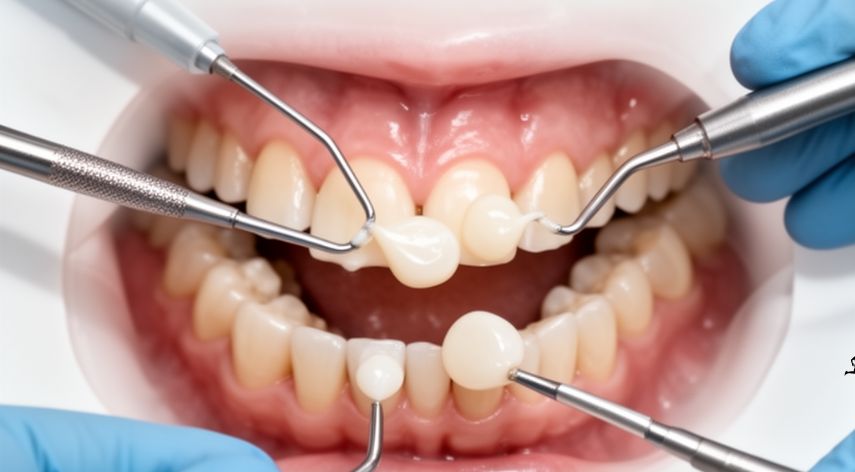11 Common Myths About Sexually Transmitted Diseases
Sexually transmitted diseases are common, and because most of them do not show symptoms, there are so many myths about them. Having the right information about STIs is important, so we aim to address these common STI myths.
Myth 1- STI testing is not necessary for people who have not had many sexual partners
This is false and is believed by a lot of people because of the social stigma attached to people who enjoy having sex with multiple partners. The truth is having multiple sex partners increases your risk of having STIs. Still, it is also possible to get an STI from having a single sexual partner, hence the need to visit a private sexual health clinic in London regularly for your STI testing.
Myth 2- If symptoms are not present, there is no need to worry about getting a test
Even without symptoms, some STIs are harmful. For example, when someone is infected with chlamydia, it could damage the reproductive system, especially in women, even when there are no symptoms. Chlamydia can also cause pelvic inflammatory disease (PID) and infertility.
Myth 3- Monogamous partners do not need STI testing
This is false as people who are monogamous with their partner need to get tested when they have a new partner. If you change your sex partner, it is important to talk about your sexual histories and get tested to ensure that none of you is infected.
Myth 4- Only teenagers get STIs
Some STIs are more common in young people, but this does not mean that only this demographic can contract STIs. Anyone at any age can get an STI, and in the past decade, the number of people with STI in their 50s – 70s has been on the increase.
Myth 5- STIs are not transmitted through oral sex.
STIs can be transmitted through oral sex, but when compared to anal and vaginal sex, the risk of transmission is lower. STIs like gonorrhoea and chlamydia can be found in the throat, so transmission through oral sex is possible.
Myth 6- Syphilis is an STI of the past, and no one gets it anymore.
Syphilis was the first widely known STI originating from France and Italy. With the recent statistics on STI, syphilis infections increased by about 20%. This means that more people are getting infected with syphilis.
Myth 7- STI testing is painful
Most STI tests are done using either blood or urine samples. A few STI testing may require a swab. Swab tests are not painful, although they are mildly invasive.
Myth 8- STIs are easily treated
Many of the common STIs like chlamydia and syphilis can be treated with antibiotics, but others like herpes and HIV are life-long and cannot be treated only managed. Gonorrhoea is one of the treatable STIs, but in recent times, a new strain known as Neisseria gonorrhoea is drug-resistant so it cannot be cured.
Myth 9- An STI cannot be contracted twice
You can get re-infected as many times as possible as long as you are exposed to the STI.
Myth 10- Symptoms of STI’s are very obvious
Some STI symptoms are similar to that of flu so they can be easily mistaken for something else. Symptoms like fatigue, fever, abdominal pain, back pain, vomiting, nausea, and joint pain can occur when you have an STI. These symptoms mentioned above are symptoms of several other infections.
Myth 11- Getting an Sexually Transmitted Diseases test is embarrassing
No one should be ashamed of taking their health seriously nor having pleasure through sex. To enjoy the latter, you need to always take care of yourself. Getting tested is a vital step in ensuring your health is at its best.
If you are sexually active or have more than one sexual partner, you are at risk of getting infected, so get a private STI testing near you today to ensure you are healthy.
You can get your private STI testing at the Sexual Health Clinic in London. Call us now on 0203 475 1653 to book an appointment.
Recommended For You
In the heart of the City of London, maintaining excellent oral health is essential for busy professionals and residents alike.
If you’re searching for “composite bonding near me” in London, it’s important to know what truly sets a clinic apart.
Cancer affecting the urinary tract and male reproductive organs requires specialized care. This is where uro-oncology plays a crucial role.
Browse by Category
- Travel
- Technology & Gadgets
- Sports & Games
- Software
- Shopping
- Reviews
- Real Estate
- Numerology
- News
- Make Money
- Lifestyle
- Law
- Home Improvement
- Health
- Gardening
- Games
- Finance
- Entertainment
- Education
- Digital Marketing
- Diet and Fitness
- Dating
- Construction
- Celebrity
- Career and Jobs
- Business
- blog
- Angel Number



